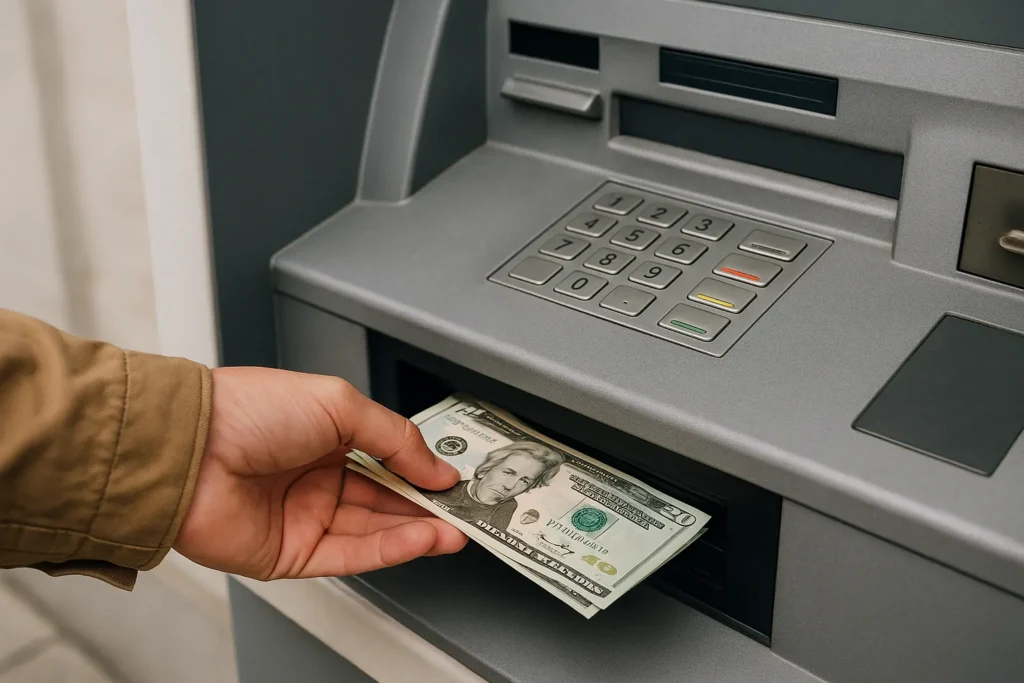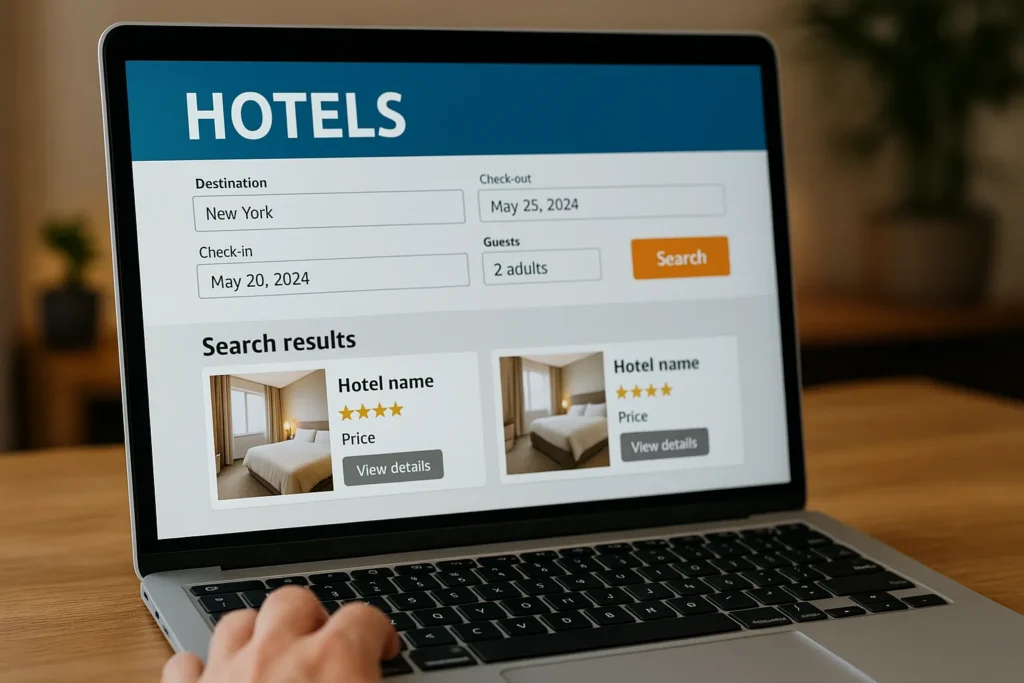You’ve scored the flights, booked the room, and mapped out the itinerary. And it all fits within your budget. Or so you thought.
Then come the extras: a “resort fee” you never saw coming, airline seat selection charges that weren’t included, and a baffling currency conversion fee from your bank. Suddenly, your cheap getaway isn’t so cheap.
Nothing wrecks a travel budget faster than hidden fees that catch you off guard.
The good news? With a little know-how, you can spot these traps before they strike. We’re here to tell you all you need to know to get familiar with the most common culprits and how to beat them.
Airline Extras That Don’t Fly With Your Wallet
It’s the little things that drain your budget before you’ve even unpacked your bags. Airlines are masters at sneaking in extra charges. Some are just cheeky, others feel like daylight robbery.
Here’s what to watch for:
Seat Selection Fees
You might think paying for a flight means you can choose your seat, but many budget airlines charge extra for seat selection, especially for aisle or window seats. These fees can range from $10 to $50 per person, and for families, they add up fast.
Tip: Book early to secure free seat selection. If you’re traveling solo or don’t mind where you sit, opt for randomly assigned seating at no extra charge.
Checked Baggage Charges
Checked baggage often isn’t included in the base fare and can cost $30 to $50 per bag. For longer trips, this can quickly escalate, and overweight bags can incur additional fees ranging from $50 to $100.
Tip: Pack light and use carry-on luggage to avoid these fees. If you must check a bag, add it at booking to lock in the lowest rate.
Priority Boarding Charges
Priority boarding can cost $10 to $50, allowing you to board early. However, many airlines offer early boarding for families or loyalty members, making this fee unnecessary.
Tip: Skip the priority boarding fee and wait for your group to be called. Many airlines let families board first.
Carry-On Baggage Fees
Some airlines charge for larger carry-ons, even if they fit under the seat. If your carry-on exceeds size limits, you may be forced to check it at the gate, where fees are higher.
Tip: Check the airline’s baggage policy and measure your carry-on. Use a small, soft-sided bag to fit under the seat and avoid extra charges.
Food and Drink Charges
Food and drinks on flights are often overpriced, with in-flight meals costing $10 to $30. Bottled water and snacks can be $5 or more, and many airlines only accept digital payment.
Tip: Bring your own snacks and meals, especially for short flights. Ask for free water instead of buying bottled drinks.
The Fine Print at Hotels: Resort Fees and More
If you thought you were done paying once you booked your accommodation, think again. Hotels are notorious for adding extra charges, some of which may surprise you when you check out. These hidden fees can quickly make what seemed like an affordable stay much more expensive.
Beyond the nightly rate, many hotels add charges for things you may not even use: resort fees, room service, and even towels.

Here’s a breakdown of the most common fees you might encounter during your stay and how you can avoid them.
Resort Fees
Resort fees are added daily and cover amenities like pool access, Wi-Fi, and gym use. These can range from $20 to $50 per night or more, even if you don’t use them. Some resorts even charge for “complimentary” services like towels or lounge chairs, which can inflate your bill.
Tip: Call ahead to confirm if resort fees apply. Look for hotels that include these costs in the room rate or book directly to avoid third-party charges.
Room Service & Mini-Bar Charges
Room service and mini-bar items are often overpriced, with prices for snacks and drinks starting at $5 and quickly rising. Some hotels also charge you for “restocking” items you may have simply moved.
Tip: Clear the mini-bar upon arrival. Buy snacks and drinks from a local store or check mini-bar prices before indulging.
Towel & Pool Charges
Some hotels charge for towels and pool access, especially at resorts. These charges can range from $10 to $50 per day, adding unexpected costs to your stay.
Tip: Confirm what’s included in your room rate when booking. Ask about pool or towel fees and consider hotels that include these amenities for free.
Early Check-In & Late Check-Out Fees
Hotels often charge a premium for early check-ins or late check-outs, typically between $20 and $50, depending on availability. These fees can be especially steep during peak travel seasons or busy times, making flexibility with your arrival and departure times more costly.
Tip: Plan around standard check-in and check-out times. Contact the hotel for flexibility or ask for complimentary luggage storage if needed.
Items That Seem Free But Come With a Charge
Some hotels offer items like bathrobes, slippers, and in-room snacks or drinks that appear free. But taking them could lead to surprise charges, depending on the item.
I once saw a big tote bag in my hotel room with a tag that said, “take me home.” Would you be surprised if I told you it wasn’t a gift from the hotel? Charges like these can sneak up on you and usually range from a few dollars to over $50.
Tip: Ask about the hotel’s policy on complimentary items. If you want something, see if you can buy it directly at a lower price.
Hotel fees aren’t the only costs that can catch you off guard. Don’t forget about the transportation fees! In the next section, we’ll take a closer look at how to manage these transportation costs.
Car Rental Pitfalls and Local Transport Traps
Have you ever thought about how much you’re really paying just to get from the airport to your hotel, or for that afternoon sightseeing tour? Whether you’re renting a car, hailing a taxi, or using ride-sharing apps, these charges can add up faster than you think.
Here’s how to navigate those transportation costs and avoid unnecessary fees.
Rental Car Charges
While renting a car gives you flexibility, hidden charges like insurance, GPS, fuel, and airport surcharges can quickly increase the cost. Additional features, such as unlimited mileage and extra drivers, also add to the total price.
Tip: Check the fine print before booking. If you have car insurance or a credit card that covers rentals, you may not need to buy the extra insurance. Book from off-airport locations to save on fees and be mindful of fuel policies.
Insurance Costs
Rental companies often upsell insurance coverage, adding $10 to $30 per day. However, your existing car insurance or travel credit card may already cover the rental.
Tip: Verify your coverage before renting. If you’re covered, decline the rental company’s insurance. Check local requirements if renting abroad.
Toll Charges
Many rental car companies charge fees for using toll roads, adding up quickly, especially in toll-heavy areas. They may also offer a toll pass for an extra fee, but this can be expensive if you don’t need it.
Tip: Use GPS apps to avoid toll roads. If you need to use them, ask about the cost of the rental company’s toll pass and compare it with individual toll costs.
Local Taxi and Ride-Sharing Costs
For those who choose not to rent a car, taxis and ride-sharing services like Uber and Lyft are popular alternatives. However, these services can be more expensive than they seem, especially when surge pricing kicks in during peak hours.
Tip: Check for surge pricing in ride-sharing apps. Consider walking a few blocks away from tourist spots to get a better fare, or use public transport for cheaper options.
Tourist Trap Charges
Taxis, shuttle services, and local drivers in tourist areas often charge inflated prices. For example, a short ride to a nearby landmark or beach might cost double the usual rate just because it’s a popular tourist spot.
Tip: Stick to official transport services and research rates before booking. Use public transport or day passes when possible to avoid tourist trap pricing.
With transportation under control, have you wondered how much those tickets really cost at popular attractions? It’s time to jump into the next section.
Currency Conversion & Foreign Transaction Costs
If you’ve ever had the experience of planning a perfect trip, only to be hit with foreign currency conversion fees or bank charges, you know how frustrating it can be. Before you’ve even left the country, your bank account feels lighter. What’s worse is that these fees are often hidden, making them easy to miss.

Here’s where they come from and how to avoid them:
ATM Withdrawal Fees
ATMs often charge fees for international withdrawals, including both bank fees and charges by the ATM operator. These can add $2 to $5 per transaction, increasing if you’re withdrawing large sums.
Tip: Use ATMs in-network with your bank to avoid extra fees. Consider using no-fee travel accounts for international withdrawals.
Dynamic Currency Conversion
Many merchants offer dynamic currency conversion (DCC), which allows you to pay in your home currency. However, this often comes with poor exchange rates and additional fees, costing you more than necessary.
Tip: Always choose to pay in local currency to get the best exchange rate and avoid additional fees from DCC.
Foreign Transaction Fees
Many credit cards charge foreign transaction fees of 1% to 3% for purchases made in foreign currencies. This fee can quickly add up, especially if you’re making multiple transactions abroad.
Tip: Use credit cards that don’t charge foreign transaction fees. Many travel-focused cards offer this benefit.
Poor Exchange Rates
Currency exchange kiosks at airports or tourist areas often offer poor exchange rates, costing you more for the same amount of currency. These services typically have hidden fees in the exchange rate itself.
Tip: Avoid exchanging money at kiosks. Use ATMs or bank transfers for better rates, and download apps to monitor rates before exchanging.
Foreign transaction fees can take a significant chunk out of your travel budget if you’re not aware of them. But, unfortunately, they are not the only hidden fees to look out for. Mobile roaming charges are often-overlooked and can add up quickly if you’re not prepared.
Roaming Charges & Mobile Traps You Might Miss
Mobile roaming charges can be one of the most frustrating hidden fees when traveling abroad. Without realizing it, you could rack up costly fees for data usage, phone calls, and even sending a text message.
Let’s take a look at the most common mobile-related charges and how to avoid them.
Roaming Data Charges
Using your phone abroad can result in roaming data charges, which can be exorbitant if you’re not careful. Some carriers charge high fees for mobile data usage, even for basic browsing or app use.
Tip: Turn off data roaming or switch to Wi-Fi whenever possible. Consider getting a local SIM card or an eSIM for cheaper data rates.
International Call & Text Fees
International calls and text messages often come with high charges, and some carriers add hefty fees for receiving calls or texts abroad. These fees can quickly add up, especially if you’re trying to stay in touch with friends and family back home.
Tip: Use Wi-Fi calling or messaging apps like WhatsApp and Skype to stay in touch over the internet. If you must use your phone, check with your carrier for international plans to reduce costs.
Hotel & Airport Wi-Fi Charges
Many hotels and airports advertise free Wi-Fi, but these services can come with hidden charges for higher speeds or access in certain areas. Even when free, the speed can be unreliable, and you might be tempted to pay for a faster connection.
Tip: Always ask about Wi-Fi charges at check-in. Use mobile data if you need faster speeds or rely on free Wi-Fi in cafes or public areas.
Using Your Phone as a Hotspot
Using your phone as a hotspot for other devices while abroad can result in additional charges. Some carriers charge extra for hotspot usage, even if you’re just using it for basic browsing or email.
Tip: Disable the hotspot feature when not needed. If you need one, consider using a local portable hotspot to avoid extra fees.
So, now that we’ve tackled mobile charges, what about all those hidden costs that can surprise you when booking flights or accommodations? In the next, we’ll cover booking platform fees and how third-party booking sites might be inflating your travel costs.
Booking Platform Fees & Unexpected Costs
If you’ve ever booked through a third-party platform thinking you scored a great deal, you might have been surprised by unexpected charges at checkout. These sites often add hidden fees or bump up the final price with service charges that weren’t clearly disclosed.

Here’s what to watch for and how you can keep those extra costs off your bill.
Booking Fees
Many third-party booking platforms charge booking fees for handling your reservation, which can add $5 to $15 or more to your total cost. (Is everyone tired of these hidden fees yet?) While these fees might seem small, they can add up, especially if you’re booking multiple trips or tickets.
Tip: Book directly with airlines, hotels, or car rental companies to avoid extra service fees. Always double-check the total cost of your reservation before confirming your booking.
Hidden Cancellation or Change Fees
Some platforms may offer flexible cancellation or changes, but those services often come with additional fees. These fees can be $30 to $100 per change or cancellation, and they’re often not clearly disclosed during the booking process.
Tip: Review the cancellation policy before booking. If flexibility is important, look for bookings that offer free cancellation or minimal change fees.
Price Inflations on Third-Party Sites
While third-party booking platforms may advertise low prices, the final price can be inflated with additional charges. These charges might include service fees, taxes, or surcharges that weren’t included in the initial price.
Tip: Always check the breakdown of the total price before completing your booking. Consider using price comparison websites that give you a full breakdown of all fees.
Package Deals with Hidden Fees
Package deals that bundle flights, hotels, and car rentals often come with hidden costs. Additional fees, like airport taxes or resort fees, may not be disclosed until you check out.
Tip: If booking a package, ask for a complete breakdown of all costs. Ensure the hotel or service provider lists all fees before committing to the deal.
With these strategies in hand, you’ll be ready to spot hidden charges before they sneak onto your bill.
Wrap-Up: Know the Fees, Keep the Fun
Alright, now that you’re equipped to handle those sneaky fees, it’s time to take control of your travel budget. The key to keeping things affordable is being aware and staying proactive. It’s all about taking small steps to avoid those unexpected charges so you can focus on what really matters: enjoying your trip!
Remember to:
- Read the fine print to uncover any hidden fees before booking.
- Ask about additional charges for things like baggage, resort fees, and more.
- Use credit cards that waive foreign transaction fees to save a little extra.
- Pack light to avoid checked baggage fees and save on space.
- Book directly with hotels and airlines to avoid third-party service fees.
Keeping these details in check will help you cut down on travel expenses and increase your enjoyment. You’ve got this!
So go ahead, take that trip you’ve been dreaming of. Avoid those extra costs, and put your energy into making memories. Happy travels!